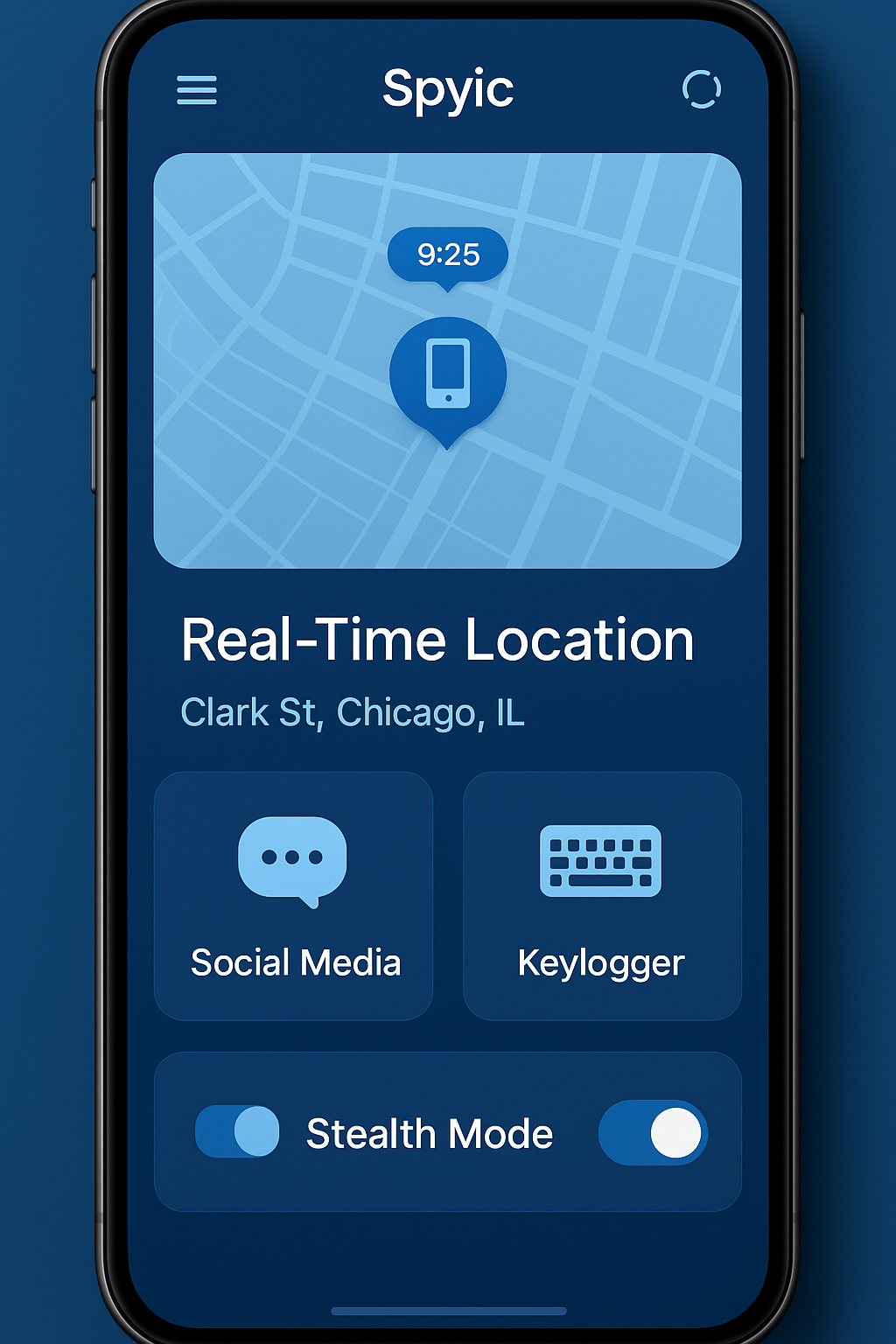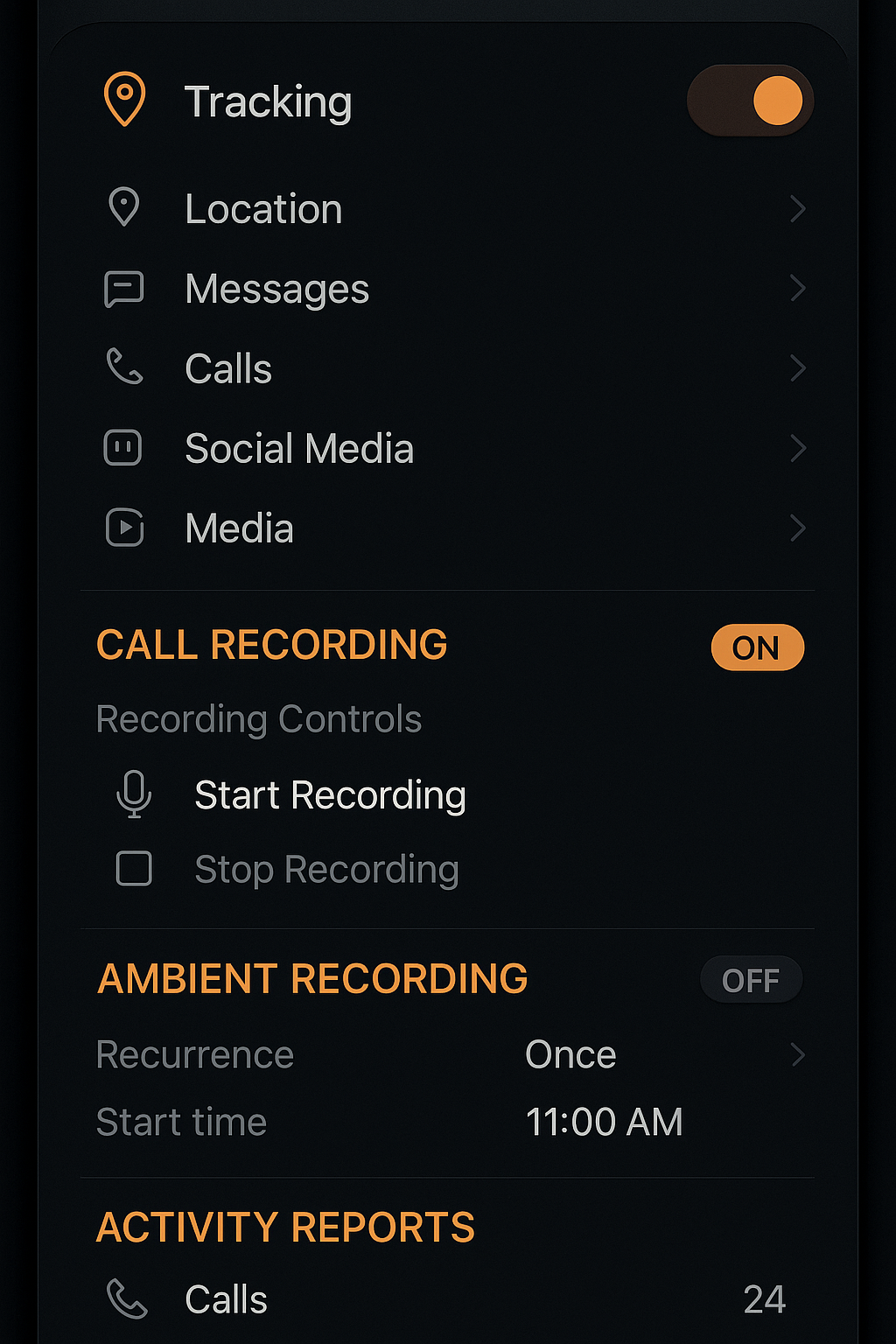The terms "phone tracker" and "spy app" are often used interchangeably, but they represent distinct categories of monitoring software with different purposes, capabilities, and ethical implications. Understanding these differences is crucial for selecting the appropriate solution for your specific monitoring needs while ensuring legal compliance and ethical usage.
This comprehensive comparison will explore the fundamental differences between phone trackers and spy apps, examine their respective strengths and limitations, and provide guidance on when each type of solution is most appropriate. Whether you're a parent seeking family safety tools or a professional requiring advanced surveillance capabilities, this guide will help you make an informed decision.
Fundamental Philosophical Differences
The primary distinction between phone trackers and spy apps lies in their fundamental approach to monitoring and the relationship between the monitor and the monitored. Phone trackers are generally designed with transparency and consent in mind, emphasizing family safety, parental control, and legitimate business monitoring with the knowledge of device users.
Phone trackers typically operate under the assumption that monitoring is conducted with appropriate authorization and often with the awareness of the person being monitored. These applications focus on safety, productivity, and responsible device usage rather than covert surveillance. They often include features that promote healthy digital habits and open communication about monitoring activities.
Spy apps, conversely, are designed primarily for covert surveillance and discrete monitoring without the knowledge of the device user. These applications prioritize stealth operation, comprehensive data collection, and advanced surveillance capabilities that enable detailed monitoring of all device activities. The emphasis is on gathering intelligence and maintaining complete invisibility rather than promoting transparency or healthy digital relationships.
This philosophical difference influences every aspect of these applications, from their user interfaces and feature sets to their marketing approaches and target audiences. Understanding this distinction is essential for choosing the appropriate type of monitoring solution for your specific circumstances and ethical considerations.
Feature Scope and Capabilities Comparison

Phone trackers typically focus on essential monitoring features that support safety and responsible device usage. These commonly include real-time location tracking with geofencing capabilities, basic communication monitoring for safety purposes, screen time management and app usage analytics, content filtering and parental control features, and emergency response capabilities with panic buttons or automatic alerts.
The feature set of phone trackers is generally designed to be comprehensive enough to address safety and productivity concerns while remaining user-friendly and accessible to non-technical users. These applications often include educational components and guidance about healthy digital habits, reflecting their focus on positive outcomes rather than pure surveillance.
Spy apps offer significantly more extensive and sophisticated monitoring capabilities, often including advanced features such as call recording and interception, ambient audio recording through device microphones, comprehensive keylogging with password capture, detailed social media and messaging surveillance, remote device control and camera access, and stealth operation with complete invisibility.
The advanced capabilities of spy apps often require deeper system access, including root access on Android devices or jailbreaking on iOS devices. This requirement reflects the sophisticated nature of these applications and their ability to monitor virtually every aspect of device usage and user behavior.
Legal and Ethical Considerations
The legal landscape surrounding phone monitoring varies significantly between phone trackers and spy apps, primarily due to their different approaches to consent and transparency. Phone trackers, when used appropriately with proper authorization, generally operate within legal boundaries and are designed to comply with privacy laws and regulations.
Legal use of phone trackers typically includes parental monitoring of minor children's devices, employer monitoring of company-owned devices with employee notification, and personal device tracking for security purposes. These applications often include legal guidance and require users to acknowledge their responsibility for lawful usage.
Spy apps present more complex legal challenges due to their covert nature and comprehensive surveillance capabilities. While these applications can be used legally in certain circumstances, such as monitoring devices you own or have explicit permission to monitor, their stealth capabilities make them potentially problematic from a legal standpoint.
The use of spy apps without proper authorization may violate various laws including privacy statutes, wiretapping regulations, and computer fraud laws. The advanced features of spy apps, such as call recording and ambient audio monitoring, may be subject to additional legal restrictions depending on jurisdiction and circumstances.
Installation and Technical Requirements

Phone trackers are generally designed for straightforward installation and setup, with user-friendly interfaces and clear instructions that make them accessible to users with varying levels of technical expertise. Most phone trackers can be installed and configured without requiring device modification or advanced technical knowledge.
The installation process for phone trackers typically involves downloading the application from official app stores or authorized websites, granting necessary permissions for location and communication access, and configuring monitoring preferences through intuitive setup wizards. Customer support is usually readily available to assist with installation and configuration questions.
Spy apps often require more complex installation procedures and may demand advanced technical skills for optimal operation. Many spy apps require root access on Android devices or jailbreaking on iOS devices to access their full feature sets, processes that can void device warranties and potentially introduce security vulnerabilities.
The technical complexity of spy apps reflects their sophisticated capabilities and the need to operate at deeper system levels to achieve comprehensive monitoring. This complexity can make spy apps more challenging to install and maintain, particularly for users without technical backgrounds.
User Interface and Accessibility
Phone trackers prioritize user-friendly interfaces that make monitoring information easily accessible and understandable for users of all technical skill levels. These applications typically feature intuitive dashboards with clear navigation, helpful explanations of features and data, and educational resources about digital safety and responsible monitoring.
The design philosophy of phone trackers emphasizes clarity and ease of use, recognizing that many users are parents or business managers who need effective monitoring tools without requiring extensive technical training. Visual elements such as maps, charts, and graphs help users quickly understand monitoring data and identify important information.
Spy apps often feature more complex interfaces that reflect their advanced capabilities and professional target audience. While these interfaces provide access to comprehensive monitoring data, they may require more technical knowledge to navigate effectively and interpret the collected information.
The complexity of spy app interfaces is often necessary to accommodate the extensive feature sets and detailed surveillance capabilities these applications provide. However, this complexity can make spy apps less accessible to casual users who simply need basic monitoring functionality.
When to Choose Phone Trackers
Phone trackers are the appropriate choice for most family safety and legitimate business monitoring scenarios. Parents seeking to ensure their children's safety while promoting healthy digital habits will find phone trackers provide the necessary capabilities without the ethical complications of covert surveillance.
Business environments where employee monitoring is necessary for productivity, security, or compliance purposes benefit from phone trackers that provide transparent monitoring with appropriate employee notification. These applications can help organizations manage company devices and ensure appropriate usage without creating adversarial relationships with employees.
Individuals seeking to track their own devices for security purposes or families wanting to share location information for safety reasons will find phone trackers provide appropriate functionality with user-friendly interfaces and reasonable pricing.
Phone trackers are also preferable when legal compliance and ethical considerations are paramount, as they are designed to operate within established legal frameworks and promote responsible monitoring practices.
When to Consider Spy Apps
Spy apps may be appropriate in specific circumstances where advanced surveillance capabilities are necessary and legally justified. Professional investigators, security professionals, and law enforcement personnel may require the sophisticated monitoring capabilities that spy apps provide for legitimate investigative purposes.
Corporate security applications where comprehensive device monitoring is necessary to protect sensitive information or investigate security breaches may benefit from the advanced capabilities of spy apps, provided proper legal authorization and employee notification are obtained.
Personal security situations where individuals have legitimate concerns about threats to their safety and need comprehensive monitoring of their own devices may warrant the use of spy apps, though less invasive alternatives should be considered first.
It's crucial to emphasize that spy apps should only be used with proper legal authorization and in compliance with applicable laws and regulations. The advanced capabilities of these applications carry significant legal and ethical responsibilities that must be carefully considered before implementation.
For those exploring monitoring solutions, our detailed comparison of the top phone tracker apps provides comprehensive analysis of various options suitable for different needs. Additionally, our guide to legal and ethical considerations in phone tracking offers essential information about responsible monitoring practices.
Making the Right Choice for Your Needs
Selecting between phone trackers and spy apps requires careful consideration of your specific monitoring objectives, legal requirements, ethical considerations, and technical capabilities. For most users, phone trackers provide sufficient functionality while maintaining appropriate legal and ethical boundaries.
Consider your relationship with the device user, the level of monitoring required, the importance of transparency versus discretion, and the legal implications of your monitoring activities. These factors will guide you toward the most appropriate solution for your specific circumstances.
Remember that effective monitoring is not just about the technology used but also about how it's implemented and the communication surrounding its use. Whether you choose a phone tracker or spy app, ensure that your monitoring activities align with your values, legal requirements, and the relationships you want to maintain with those being monitored.